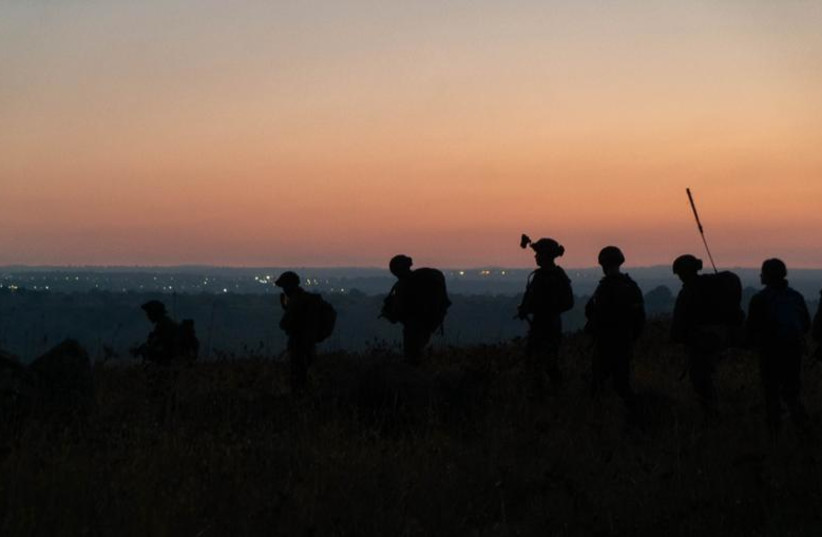In one year, on January 16, 2023, IDF Chief of Staff Lt.-Gen. Aviv Kohavi will leave his office on the 14th floor of the Kirya Military Headquarters and hang up his uniform. After decades of serving the country, he will once again be a private citizen.
But a lot can happen in a year, especially in a world plagued by the coronavirus – and specifically in the Middle East, where nothing stays the same for long.
Kohavi began his term when Israel’s usual foes – Iran, Hezbollah, Hamas and Palestinian Islamic Jihad – were top priorities. But despite the military being active on several fronts simultaneously, he has succeeded in maneuvering it away from major conflicts over the past three years.
While there have been several military operations in the Gaza Strip during his tenure, the IDF did not consider any of them as wars, no reservists were called up, and no troops entered the Hamas-run enclave.
And throughout his tenure, regardless of the surrounding difficulties, Israel’s “war between the wars” campaign against Iran and its Lebanese proxy Hezbollah has seen action on a weekly basis.

But as the commander of Israel’s military, he has also been able to keep Iran at bay. Despite thousands of operations against Tehran’s continued attempt to entrench itself in Syria and smuggle advanced weaponry to Hezbollah in Lebanon, there have been very few retaliatory attacks. And none of them have had the result that Iran might have wanted.
When Kohavi took over as Israel’s top military officer from Gadi Eisenkot in 2019, he vowed to make the IDF “deadly and efficient,” formulating his Momentum multiyear plan and Victory concept to bring the military to the next level to contend with future threats on the battlefield and ever-changing enemies.
But two years of political stalemate and the lack of a budget made it almost impossible to implement much of his Momentum plan. He has had to reprioritize and move funds from certain projects to more urgent needs, such as munitions.
Kohavi finally got his long-awaited budget late last year. In addition to allocating NIS 5 billion for dealing with Iran, the defense establishment can finally reinforce homes along the northern border – something that has not been dealt with for years.
Prime Minister Naftali Bennett last week told the Knesset Foreign Affairs and Defense Committee the IDF and other security services were undergoing their largest rearming in years.
But the lack of a budget has had a significant effect on what Kohavi has wanted to do with the IDF, for the thousands of soldiers who serve the country and on his legacy.
The retiring military chief likely will not stay a private citizen for long; after the cooling-off period mandated by law, he likely will enter politics, just as many military officers before him.
As chief of staff, he has rarely held news conferences or interviews – only when the situation demands it. In briefings with reporters, his presentations are planned out, and he knows how to answer the strong questions he is asked.
But when faced with harsh criticism, especially regarding the condition of troops, while he might hesitate for only a few seconds, you can see it bothers him.
Kohavi has visited bases across the country. When he was recently informed of the quality of food that was dished out to soldiers, he told journalists that while he was no chef, he could cook much better than what he saw.
But it’s not only food that has led troops to voice their complaints; it has also been a lack of transportation to bases. Not only have soldiers been photographed standing like sardines in a can during long bus rides, some have even hidden in the luggage compartments of buses.
Kohavi has already cared for the pensions of retired career officers, something that, in addition to the food issue, left a bad taste in the mouth of troops who earn far below minimum wage. In December, the Defense and Finance ministries announced they would be raising the pay of soldiers 50% this year, the first time in more than five years. But the increase is still laughable for those who place their lives at risk for the country.
According to a report by the Israel Democracy Institute, public trust in the IDF has decreased significantly over the past year, with 78% of Jewish Israelis saying they had “very much or quite a lot” of trust in the military. For comparison’s sake, two years earlier, 90% of Jewish Israelis said they trusted the army.
If people don’t trust the military, why would they send their sons and daughters to join combat units and put their lives at risk?
As a chief of staff who promised to care for his troops, especially combat soldiers, it is their conditions – whether it be their meager salary or the hardly edible food they are given on base – that Kohavi must focus on during his last year on the job.
All of Israel’s “regular” enemies can be held at bay, but the lack of public trust in the IDF cannot. And that is not what Kohavi wants his legacy to be.
